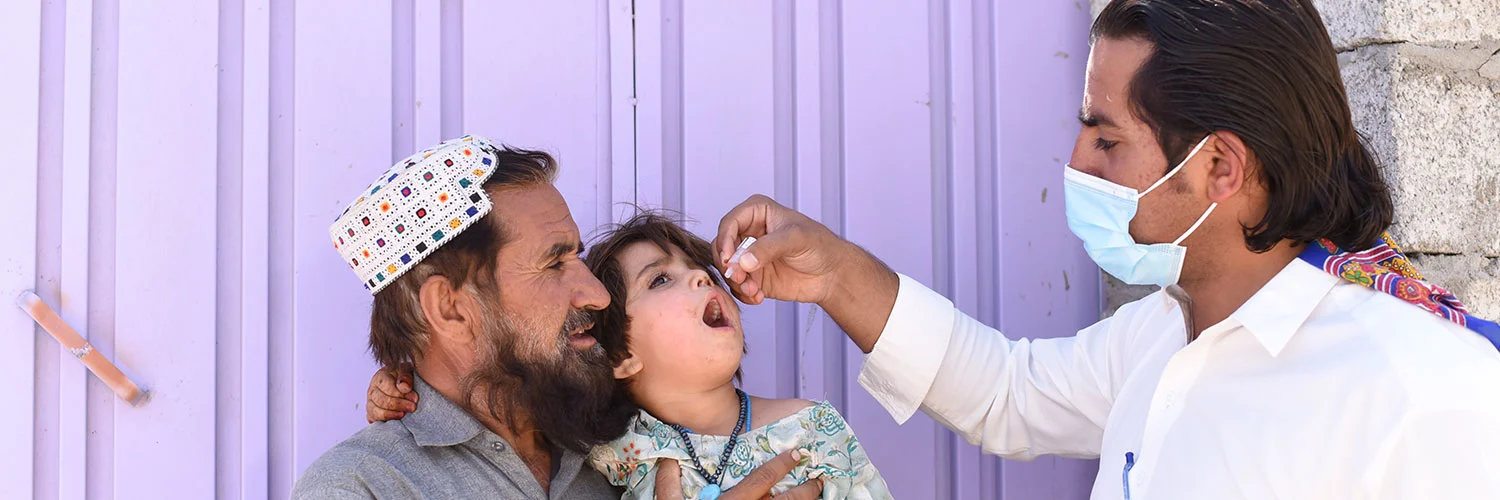Islamabad, April 29, 2015 - Minister for National Health Services, Saira Afzal Tarar leading Pakistan Delegation to the Independent Monitoring Board convened in the Abu Dhabi presented Wednesday major progress made by the country in stopping poliovirus transmission.
The delegation includes Senator Ayesha Raza Farooq, Prime Minister’s Focal Person on Polio Eradication, Provincial Secretaries Health and Coordinator of National Emergency Operation Centre for Polio.
Sharing major steps, the Minister said all agencies of FATA are now accessible to health workers and Polio vaccination is in full swing both through the house to house and Hujra strategy and the number of inaccessible children has dropped significantly from 250,000 to 48,000. Jamrud tehsil of Khyber Agency we are hoping shall soon be accessible as the military operation intensifies to flush out the last remnants of the militants.
She shared that there has been a sharp rise in campaign coverage, significant enhancement in LQAS pass percentage and a dip in number of reported cases from 58 in the corresponding period last year to 22 cases this year. Poliovirus is increasingly disappearing from the environmental samples also. The epicenter (North Waziristan) and the amplifier (Karachi) of the 2013-14 outbreaks have not reported polio cases for more than 6 months.
Senator Ayesha RazaFarooq highlighted the aspect of security of Polio teams and apprised the Board that security protection of campaigns with enhanced security coordination and planning for polio campaigns through greater cooperation between the Interior Ministry, EOCs and law enforcement agencies has been the strategy to ensure safe conduct of campaigns across Pakistan. Underscoring the current communications strategy, Senator Farooq shared that due to effective interventions to engage refusal families, there has been a sharp decrease in refusals from the previous 0.30 percent to 0.11 percent - the lowest ever in program’s history. The pro- active role of the NIAG and assigning of Religious Support Persons to High Risk union councils has resulted in a major drop in religious refusals and according to data, it is now no longer the major cause of refusal to vaccinate children. In Karachi, the identification and training of over one thousand female Community Health Workers in eight Super-High-Risk UCs is having a major impact in reaching the unreached and converting hard to change segments.
In line with TAG recommendations, enhanced focus on missed children required introducing both tracking mechanisms and technology to identify continuously missed areas and children. To this end, Pakisan Polio Program is working closely with the Survey of Pakistan to incorporate the use of geographic information systems to improve micro planning and campaign quality and we believe this technology will not only help in Polio eradication but also support our future community level public health interventions. Eleven Data Support Centers have also been established to help the programme record and track coverage of missed children in high risk Union Councils across the country.
The IMB holds its meeting twice in a year to review the global progress on Polio Eradication. Presenting the overall scope of efforts by the country, Senator Ayesha Raza Farooq said that the roll out of Emergency Operations Centres has been completed with senior leadership now in place in all EOCs. These EOCs are now the driving force in our programmatic improvement.

